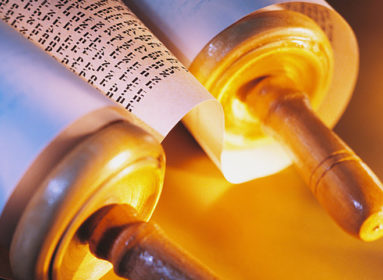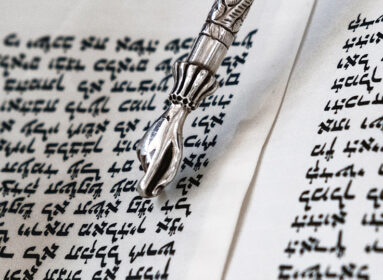
Pinchas
“May the Lord God of the spirits of all flesh appoint a leader over the witness community…” (Numbers 27:15)
After the Almighty commands Moses to ascend Mount Abarim (Mount Nebo) and gaze at the Land of Israel – to which he had been denied entry because he struck the rock – Moses proposes: “Let the Lord, God of the spirits of all flesh, appoint a person over the community who will go out before them, come in before them, and who will lead them out and bring them in.” The Almighty responds: “Take for yourself Joshua the son of Nun, a person in whom there is spirit, and rest your hand upon him…” (Numbers 27:12-18).
It is fascinating that Moses refers to the Almighty as the “God of the spirits of all flesh.” Rashi sees this as a ringing endorsement of pluralism – the necessity of a leader to be sensitive to different attitudes and ideas: “[Moses] said before Him, Master of the Universe, it is clear to You that each individual’s understanding is different from that of their counterparts. Appoint over them a leader who will be tolerant of everyone, each in accordance with his understanding” [Rashi, ad loc].
Rashi’s commentary is based on the Midrash Tanhuma and B.T. Brachot 58a, which link this idea to the rabbinic enactment that if one sees a gathering of 600,000 Jews or more, one is to recite the blessing “Praised be God, the Wise One of Mysteries.” For just as the facial features of each individual are different, so are their mind-sets.
Rabbi A.Y. Kook, the first chief rabbi of Israel, explains: “And in accordance with the secret mysteries known and revealed only to the Almighty, Praised be He, even antithetical notions may be joined together and synthesized, until a harmonious result emerges from the combination of different ideas … Their views do not begin as convergent, but ultimately the different strains and strands will merge as one. And it is certain that this ultimate unity is not evident from the beginning, because then the dispute as well as the fine-tuning of the differences would not continue… And so we are taught by the Talmudic sages: ‘scholars increase peace in the world.’ The word “increase” is a plural form (marbim); through the multiplicity of ideas in a dispute for the sake of heaven, an ultimate peace and unity can be formed” [Olat Reiya].
Rabbi Kook, Rashi and the Midrash all explain the phrase “God of the spirits of all flesh” as referring to differences of opinion not only in Halacha – as expressions of “these and those are the words of the living God” [B.T. Eruvin 13b]. Just as we preserve minority opinions in halachic discourse because they may become admissible, and even vital, so too in the realm of beliefs, opinions and attitudes.
Contemporary Judaism is a great deal richer as a result of the differing approaches of hassidim and mitnagdim. Even secular and antinomian forms of Judaism have contributed rituals which have become integrated within more traditional expressions of our faith, such as the bat mitzva, preaching sermons in the vernacular, and the synthesis between Judaism and socialism which characterizes the religious kibbutz.
A perfect and ultimate unity, a true synthesis, can only emerge from the creative tension which is a by-product of a clash of ideals and opinions. What has all this to do with leadership? Moses asks God that his successor be sensitive to the “manifold spirits of all flesh”; that Moses’ replacement not lead as a despot who silences all differing voices, but rather as a conductor who produces harmonious euphony from distinct instruments. The leader must recognize that what unites is much more significant than what divides, and so his major task is to unify without squelching individual creativity. He must produce unity but not uniformity, harmony but not a monotone.
If only all Jews would work together for the sake of the entire Jewish people and the State of Israel, because “all the gates to heaven are gates of holiness.” These are the immortal words of the Hatam Sofer, who saw differing versions – nus’haot – of prayers and different time-honored customs as harking back to the varied tapestries or “flags” of each of the 12 tribes.
If only our rabbinic leadership would understand that kashrut is supposed to unite our people rather than divide us. And if only we would all learn to love and respect the other, rather than to fear, delegitimize and de-humanize. After all, the truest Other is the Almighty Himself, to whom we must cleave, and whom we must emulate.
Rabbi Shlomo Riskin is chancellor of Ohr Torah Stone and chief rabbi of Efrat, Israel.








 Southern New England Jewish Ledger
Southern New England Jewish Ledger














